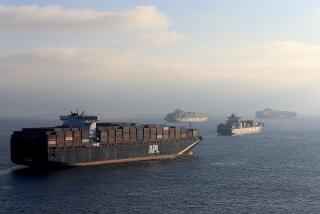Effects of Global Warming
- Share via
“A Global Warming Sea Change” (editorial, April 3) finally admits what scientists have known for years and industry has done its best to obfuscate, belittle and ignore. To restate your editorial: Big Oil has won by waging delaying tactics, it is too late now to prevent the problem and we must now focus on fixing the damage.
Wrong. The first priority must be to reduce oil and other hydrocarbon consumption. The technology exists and national policy must be established to encourage its implementation as quickly as possible. We must educate the public on the consequences of driving gas-guzzling behemoths and raise fuel efficiency standards. This would not only help avert some of the global warming effects, it would also reduce air pollution and, perhaps most significantly, would reduce our out-of-control trade deficit and excessive reliance on foreign oil.
You are probably correct in stating that it is too late to prevent global warming, since this is a long-term trend and not entirely of human cause. However, the actions we can take to reduce its effect, even belatedly, are essential, both from an environmental and economic point of view, since the cost of prevention is trivial compared to the cost of fixing the damage after the fact.
PAUL W. ROSENBERGER
Manhattan Beach
*
“Global warming” is a molehill being paraded around as if it were a mountain. The current debate is over tenths of a degree Fahrenheit, not tens of degrees. In order to have a significant sea-level change, the ice in Antarctica (about 80% of the total worldwide) would have to melt. Even a 10-degree rise would not melt it. You see, its normal temperature is way below zero, and a 10-degree increase would still not even get close to 32 degrees.
This all leads one to ask what all the hullabaloo is really all about.
CARL OLSON
Woodland Hills






